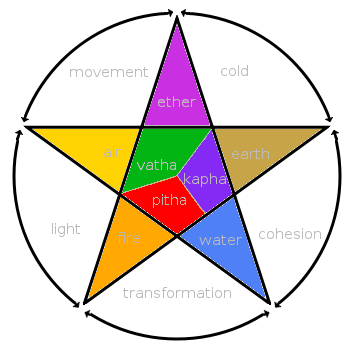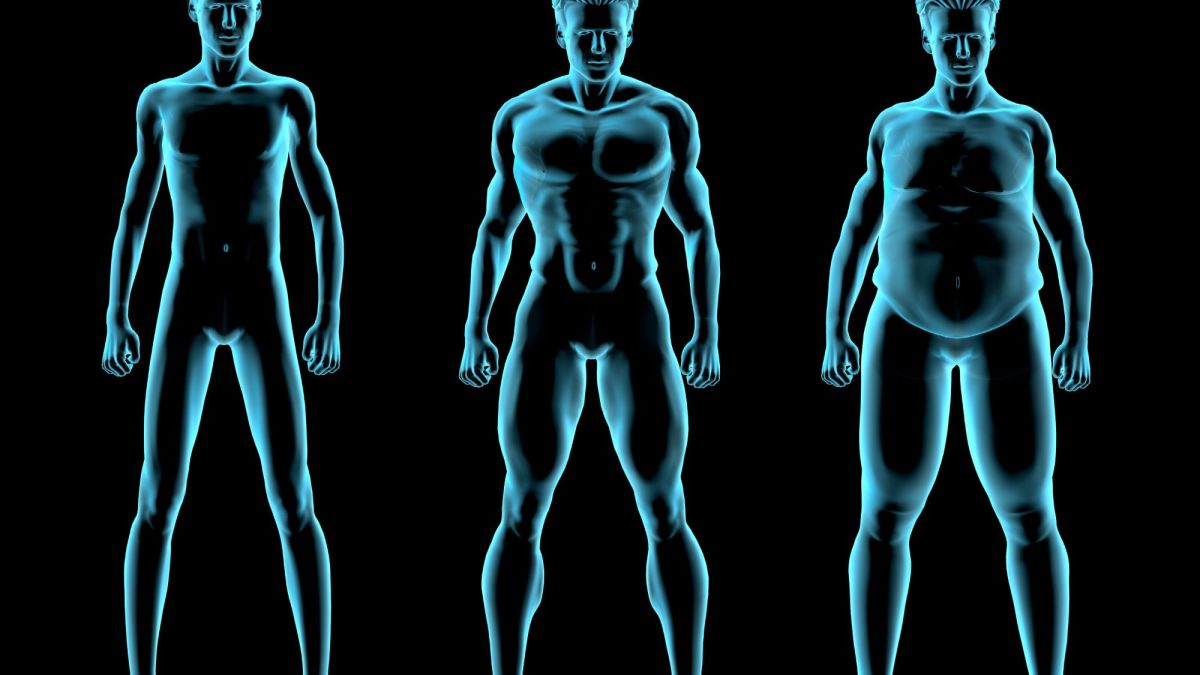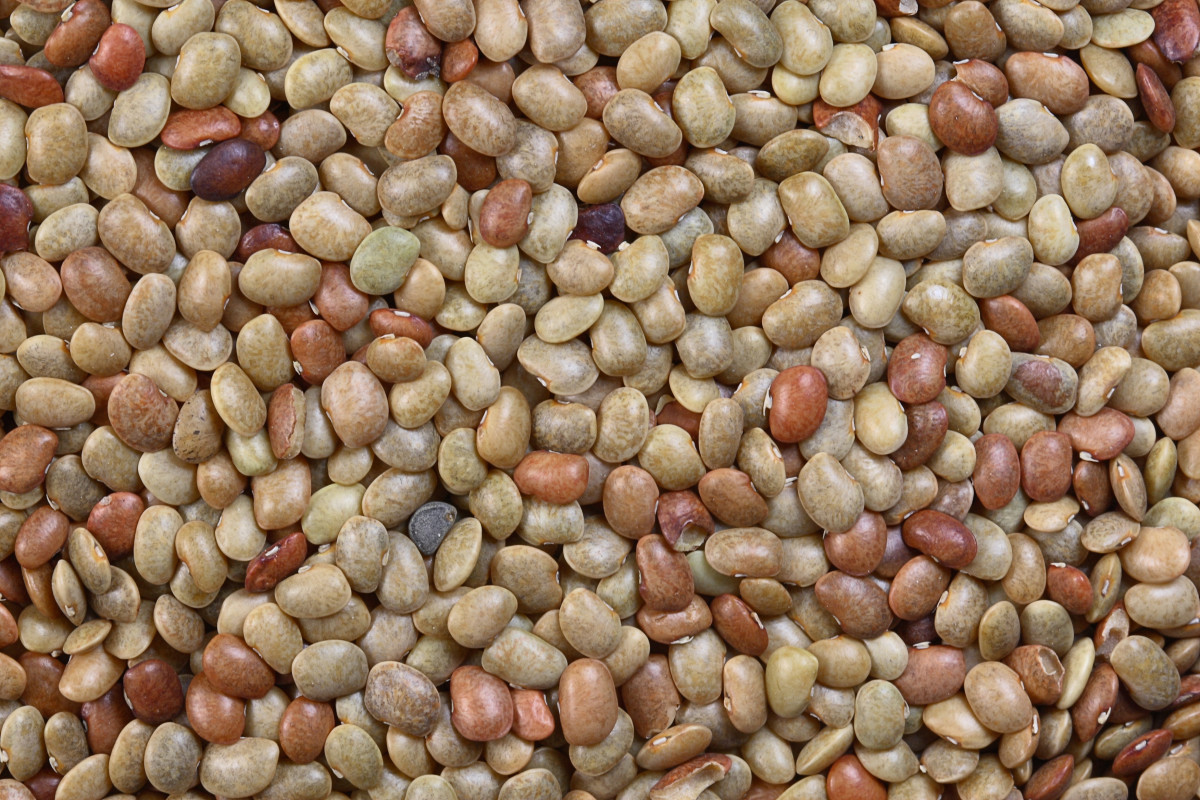Ayurveda Basis, History, Origin and Ayurveda Doshas - What's your Dosha?

Origin of Ayurveda
The word Ayurveda has been derived from Sanskrit language. Sanskrit is the ancient and classical language of India. In Sanskrit, "Ayu" means "life" and "Veda" means "science". Ayurveda is considered to be "the mother of all healing arts" because it predates all forms of healing systems. Ayurveda was developed in India almost 5000 years ago, and it is the ancient and oldest practiced healing system in the world.
History of Ayurveda
Ayurveda originated and spread from India to Egypt, Greece, Arabia (Middle East) and Rome. From Greece and Rome it spread to rest of Europe. It inspired Europe with it's profound, complete knowledge of medicine. Ayurveda also influenced the Greek humoral system, modified by Galen and became the foundation of European medicine and remained so until the end of the 17th-century. The Buddhist monks introduced Ayurveda to many lands while on their mission to spread Buddhism. It went deep into Tibet, Burma, China and Japan, all the while the Ayurvedic texts being translated into local languages. The Chinese and Tibetans were influenced the most by Ayurveda, and based on its principles created herbal treatments but used local herbs instead of Indian grown herbs. Ayurveda is a profound, complete healing practice inherited from the sages of India. After careful observations of hundreds of thousands of individuals over thousands of years, ancient sages full of wisdom and love for nature, recorded their observations and strategies encompassing every aspect of health. These sages also known as "rishis", with their profound wisdom, accurate vision and knowledge of universal existence also developed yoga, meditation, acupressure, astrology and Vedas.
Ayurveda Basis
Ayurveda emphasizes 4 approaches towards attaining good health: 1) physiology 2) environment 3) psychology 4) consciousness(spirituality). Herbal supplements and food supplements are the basis of physiological treatment. Yoga and meditation are the basis of physiological treatment and consciousness, they are incorporated into Ayurveda because they impact the health of the mind and spirit which affect our physical health. In consciousness Ayurveda expresses the mind and body connection through its belief that all humans possess both a physical body and an inner essence, bridged by the mind and sense organs and strives to restore the innate harmony of the individual.
Ayurveda is a beautiful blend of accuracy of science and the sublimity of philosophy. In Ayurveda, health is considered a state of balance not simply the absence of disease. It treats the whole person and not just the disease, as it believes that treating a specific disease does not remove the root cause of illness. Ayurveda achieves the goal of maintaining optimum health. Ayurvedic formulations focus more on the whole herb and not just the active ingredient. With extensive research into the plant components, it has been shown that the biological synergy of whole plants has yielded exceptionally effective formulas that may be offered with complete confidence at a remarkably high rate of success. Dr. Deepak Chopra of the Chopra foundation said, " it is the plant that has the intelligence of the universe within itself , isolating the active ingredient from the plant, as is being done in Western medicine is like taking the intelligence and leaving the wisdom behind ".
Ayurveda is a blueprint for living and living according to Ayurveda should be in accordance with the laws of nature. Ayurveda was brought to us by wisemen/physicians of that time through their reverence for nature and their understanding that the five elements, earth, water, fire, air and ether are the foundation of the gross world and are also within us and without us forever.

Ayurveda Doshas or Body Types
The human body, according to Ayurveda, is composed of 3 fundamental elements called "doshas", "dhatus" & "malas". The three elements when joined in different combinations make up the three Ayurveda Doshas - biological modes or body types which are the "prakruti" or nature and characteristic tendencies of an entire individual.
The doshas govern the physio-chemical and physiological activities of the body. The combination of air and ether gives us "vata" or the kinetic biological mode, vata is kinetic in nature and causes all movements in and out of the body(breathing, urination, defecation, sweating, menstruation etc.) vata types tend to be thin and perform activities quickly, skin tends to be dry, have dry coarse hair, erratic appetite, imaginative, fearful and anxious, light sleepers, fear of cold and are easily excitable.
The combination of fire and water gives us "pitta" or the transformative biological mode. Pitta governs the digestive and endocrine systems. Pitta types have moderate body weight, tend to have skin disturbances, medium frame, fine or thinning hair, strong appetite, prone to digestive disturbances, intelligent, easily angered, moderate sleepers, fear of heat, motivated and have intense moods.
The third combination of earth and water gives "kapha" it controls stability and lubrication in the body, kapha types tend to be heavy set, oily skin, short, abundant hair, low appetite, slow, calm, heavy sleepers, fear of cold and stubborn. All three doshas exist within everybody but only one predominates, though no one is purely one dosha, most people are a combination of 2 doshas. When doshas are correctly balanced, a person is vibrant, energetic and healthy.
Ayurveda Doshas are energy and too much or too little can affect the body negatively. Doshas can go out of balance for a number of reasons, among them are emotional upsets, toxin accumulation, overeating, trauma and stress. Put simply, health represents order and disease represents disorder. So, Ayurveda emphasizes that in order to stay well all three doshas must be balanced. The remaining two fundamental elements are "dhatus"(body tissues) and "malas" (body waste). Dhatus perform a specific action in the body while malas are substances that are excreted in a modified form after serving their physiological function.

Notable Sages contributed for Ayurveda
Three Indian sages that are most noted for their brilliant and outstanding work in this ancient practice of Ayurveda, are 1) Charaka 2) Sushruta 3) Vagbhata.
1) The medical treatise written by each one is called "samhita", Charaka Samhita is the oldest and most important of the ancient writings on Ayurveda. It concentrates on internal medicine(kayachikista), the great sage and physician has written information in his Charaka Samhita about the development of an embryo within the womb week by week, month by month, limb by limb from conception to birth in great accuracy!!
2) Sushruta Samhita was written after Charaka Samhita, it discusses 76 visual disorders, 51 of which were treated surgically! The author lists 101 blunt and 20 sharp surgical instruments that were very similar to instruments used today. Advanced surgical procedures included plastic surgery and skin grafts. Sushruta Samhita also lists 700 healing plants, 64 mineral based preparations, 57 animal source preparations and 1120 illnesses, and this is historical fact.
3) Astanga Hrdayan Samhita was written by Vagbhata, it includes topics such as pregnancy, birth complications, human anatomy and personal hygiene - a topic that wasn't included in the curriculum of European universities until the late 19th century. This work found its way to Tibet then China and Japan.
Ayurveda Disciplines
We can get a pretty good picture of how advanced the science of Ayurveda was by observing its eight disciplines:
1) Kayachikitsa (Internal Medicine)
2) Balchikitsa (Pediatrics)
3) Bhutavidya (Psychiatry)
4) Urdhranga Chikitsa (Ear-Nose-Throat)
5) Salya Tantra (Surgery)
6) Agada Tantra (Toxicology)
7) Rasayana (Geriatrics)
8) Vajikarana (Sexology).
So, Ayurveda is traditional wisdom in a new age. Indian sages sought philosophical and medical wisdom and much of their medical wisdom embodied in Ayurveda can help you revamp your health. This statement is also fortified by 2 pioneers, Stuart Rothenberg and Richard Averbach, who brought Ayurveda to the USA, their statement states that "the patients treated with Ayurvedic medicines improved significantly in stamina, vitality, digestion, state of mind and rejuvenation". Ayurveda is a perfectly formulated, extensive traditional system of true healthcare, a system that helps people to stay healthy. To the Western mind, Ayurveda was shrouded in mysticism but now the West is recognizing the benefits of this ancient wisdom. Dr. Deepak Chopra deserves a lot of credit for bringing Ayurveda into the forefront for benefit of society at large.
Although to date, only the surface of this healing science has been scratched, the optimism is that it will grow in popularity as more health-conscious individuals understand the concept of Ayurveda as a healing art.








